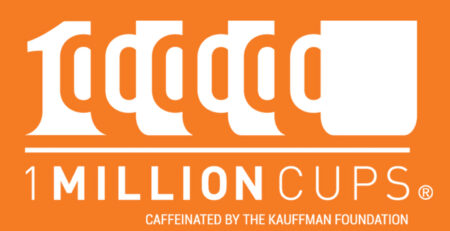Financial Jargon Every Entrepreneur and Small Business Needs to Know
Funding a business can be tricky – especially if you don’t know your options. General definitions of financial terms are a great place to start.
MOSourceLink has compiled this list of keywords, abbreviations and names that can help you solve your company’s funding puzzle. When you have the vocabulary, you can ask smart questions and move toward your goals.
Glossary of financial terms
Angel investors: High-net-worth individuals who provide funding to startups and early-stage business that have the potential for high growth. Angels invest this capital in exchange for equity or convertible debt. Usually, they invest anywhere from $5,000 to $100,000 of their own money. Super angels typically invest larger amounts, either by themselves or cooperatively with other like-minded individuals. Check out our guide to Missouri angel investment groups.
Anti-dilution provision: A stipulation in an option or convertible security. It protects the investor from dilution that might result from later issues of stock at a lower price than what the investor originally paid. This is also referred to as an anti-dilution clause. Get the details in a financial education class.
Bankable companies: Companies that have the collateral, track record and/or cash flow to qualify for conventional bank financing. Nonbankable companies usually need access to alternative loans or bank guarantees. Check out our guide to Missouri loan funds.
Burn rate: The rate a company expends net cash. It’s measured over a certain period, usually a month. Need to learn more about budgeting and cash flow? Find a financial education class on the MOSourceLink calendar.
Cap table: A table that analyzes the founders’ and investors’ percentage of ownership, equity dilution and value of equity in each round of investment. Also called a capitalization table, it provides a record of all the major shareholders in a company. It notes shareholders’ pro-rata ownership of all the securities issued by the company, such as equity shares, preferred shares and options. It also outlines the various prices these stakeholders paid for these securities. When you need help analyzing your finances, a free Personal Action Plan can connect you with the people and programs to help.
Cash flow: The total amount of money coming in and going out of a business. It’s the difference between cash that’s available at the beginning of an accounting period and at the end of that period. Cash comes in from sales, loan proceeds, investments and the sale of assets. It goes out to cover operating and direct expenses, principal debt service and the purchase of assets. Find a class where you can learn more about cash flow.
Common stock: A security that represents ownership in a corporation. Holders of common stock exercise control by electing a board of directors. They also vote on corporate policy. In an ownership structure, common stockholders have the lowest priority. Learn more in our 12-part guide to funding your business.
Convertible bond: A corporate debt that pays the holder interest payments but can be converted into common stock or equity shares. A convertible bond is kind of a hybrid security that gives investors interest but also provides the option to own stock. It can help startups raise funds quickly, even if they don’t have a credit history. Learn about one startup’s experience seeking convertible debt.
Crowdfunding: Financing a project or business with small amounts of money from a large number of people. This is often done via the internet. Explore our guide to funding your business.
More terms below …
[[CTA]]
Debt: The amount of money borrowed by one party from another. Companies in the startup and growth stages often take out loans to get up and running. Debt doesn’t give the lender any company ownership, and the borrower must repay debt. Here’s a list of Missouri loan funds.
Discounted cash flow (DCF): A valuation method. It’s used to estimate how attractive an investment opportunity is. DCF analysis uses future free cash flow projections and discounts them to arrive at a present value estimate. This estimate is then used to evaluate the potential for investment. In a nutshell: DCF tries to work out the value of a company today, based on how much money it’s going to make in the future. It includes the term “discounted” because cash in the future is worth less than cash today. Learn more in a financial education class.
EBITDA: Earnings before interest, taxes and amortization. This refers to a company’s earnings before deducting interest, taxes and amortization expenses. EBITDA is used as an indicator of a business’s efficiency and profitability. See the role EBITDA played when this Missouri company was courting investors.
Equity: Stock or another security that represents an ownership interest. When a company gets equity funding, it’s trading some ownership of the company for capital. See how equity fits into the business funding puzzle.
Grant: Money given to a company. It doesn’t need to be repaid and doesn’t require equity in return. Grants are available on federal, state and local levels. However, most are for nonprofit organizations, not small businesses. Find the best source of funding for your Missouri business.
Guaranteed return: A return on investment that a company is required to pay. Bonds and coupons have guaranteed returns because the issuing company agrees to pay coupons and guaranteed dividends. A guaranteed return isn’t actually 100% guaranteed – the company may default or go bankrupt. However, under some circumstances, holders of securities with guaranteed returns can force the liquidation of the company. Get more details in a financial education class.
IPO: The sale or distribution of a company’s stock to the public for the first time. Also called an initial public offering, this is an opportunity for existing investors – often venture capitalists – to get significant returns on their original investments. Find a class to learn more about how IPOs can work.
Microloan: A very small, short-term loan. These loans typically have a low interest rate and are given to startup companies or self-employed people. Borrow smart – check out our list of trusted Missouri loan providers.
Option pool: The number of shares set aside to issue to employees and nonemployees in the future. A new company might want to set aside 15–20% of its common shares to issue to future employees, board members, consultants and other key individuals. These shares act as part of a person’s compensation package and as an incentive to help the company grow. See how options can be a part of business funding.
Preferred stock: A class of ownership in a corporation. It has a higher claim on the company’s assets and earnings than common stock. Preferred shares generally have a dividend that must be paid out before dividends for common stock. The shares usually don’t carry voting rights. Learn more about equity in our guide to funding your business.
Pro forma: A method of calculating financial results. This Latin term means “for the sake of form.” The method emphasizes either current or projected figures. Need help planning your company’s finances? A free Personal Action Plan can connect you with the resources you need.
ROI: The measure of an investment’s profitability. Also called return on investment, it can help investors evaluate whether or not to invest in a business. ROI is usually a ratio or a percentage. To learn more, find a free or low-cost investment education class on the MOSourceLink calendar.
Run rate: An estimation of future financial data. Run rate assumes that current trends continue. For example, say a company makes $1 million in a month. It may then announce $12 million estimated annual earnings according to the run rate. This can be wildly inaccurate, especially if a business is seasonal. Check out our expert guide for more on the data funders want to see.
Seed capital: An investment that helps move a company from proof of concept to market, build a user base and start to scale. Seed capital investments usually range from $250,000 to $1 million. This is the first stage of business funding. See how seed capital fits into your entrepreneurial journey – and what organizations can help.
Term sheet: An agreement outlining the basic terms and conditions under which an investment will be made. This nonbinding pact serves as a template to develop more detailed legal documents. Once the parties involved reach an agreement on the details of the term sheet, a binding agreement or contract based on the term sheet is then drawn up. Our guide to funding your business can show you the way.
Valuation: What a business is worth. Valuation is different than the price of the business. You’ll need to know what your business is worth to get funding to grow and expand it. Check out the Missouri organizations that can help with valuation.
Venture capital: Financing that investors provide to startups and small businesses that have long-term growth potential. Venture capital can come from individuals, banks or other financial institutions. Sometimes it comes not as money but as technical or managerial expertise. Investors usually get equity in the company in exchange for venture capital. Find out if this kind of funding is right for your business with our guide to venture capital in Missouri.
Thanks to Investopedia for help with these definitions. Did we miss a term? Let us know. We’ll help you ASAP.
You’ve got the vocab. Now get moving.
Whether you have an established business or want to fund a side hustle, MOSourceLink can help you reach your funding goals. Our Resource Navigator lists hundreds of programs and organizations that provide free or low-cost help to entrepreneurs.
Need a little extra guidance? Get a free Personal Action Plan. Our Network Navigators will learn a little about your venture and then create an individualized plan just for you. And did we mention it’s free?











Leave a Reply